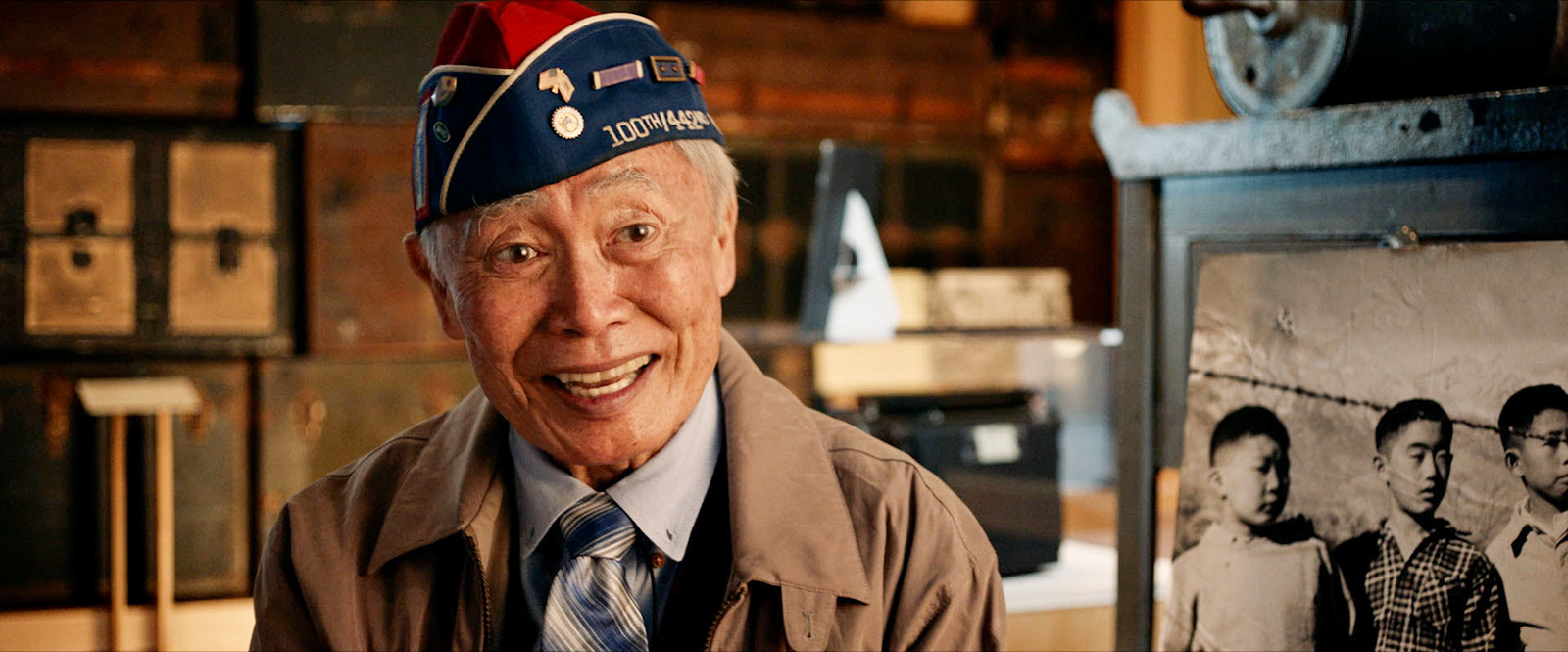George Takei aims to raise awareness about Japanese American internment in film

(Courtesy of River Road Creative)
"American"
Dec. 2
James Bridges Theater
Free
By Olivia Mazzucato
Dec. 1, 2019 10:53 p.m.
George Takei was 5 years old when the United States government classified him as an “enemy alien.”
Takei was one of over one hundred thousand innocent Japanese American citizens the government sent to internment camps during World War II. As an adult, the UCLA alumnus said he has made it his mission to raise awareness about the history of Japanese American internment camps through artistic projects such as “American,” a short film he stars in. The film will be screened Monday in UCLA’s James Bridges Theater and will be followed by a Q&A with Takei and the filmmakers to highlight Japanese American experiences during the war and shed light on a dark part of American history, Takei said.
“When I was a teenager, I became a voracious reader. I read all the history books that I could get my hands on, and there wasn’t a word about this chapter of American history,” Takei said. “I still come across people that … can’t believe such a thing happened in the United States, so it’s been my mission to raise the awareness.”
[Related: George Takei takes stage with other notable alum in UCLA event]
In “American,” Takei plays Clinton Nakamoto, a World War II veteran of the 442nd Infantry Regiment and a docent at the Japanese American National Museum. There he encounters a young woman named Liz and her son, triggering flashbacks to Japanese American internment camps and the war.
The realities of stories like Clinton’s are still unfamiliar to a shocking number of people, said Elizabeth Reiko Kubota Whitney, executive producer and UCLA alumna. Telling the story of internment felt particularly important because her parents met in a Japanese American internment camp. Whitney said her mother lived in the same camp block as Takei’s family and worked for his father in the office where he used to run around as a young child.
Though Takei was too young to fight in the war during the internment period, his experience still informed his approach to Clinton. Takei said he drew from the details he remembered of the desolate camps Japanese Americans were placed into, along with the sentiment that led to the signing of Executive Order 9066, which authorized internment.
“I tried to find in myself what it must have felt like to be incarcerated, first of all, when you’re innocent,” Takei said. “We had nothing to do with Pearl Harbor, and yet, because we looked exactly like the people that bombed Pearl Harbor, this nation … was swept up by war hysteria combined with racism and saw us as enemy.”
That hysteria is depicted by the Japanese American National Museum, which Whitney said was just as much a character in the film as Clinton. Takei himself has been involved in the museum since its founding and is a chairman of the Board of Trustees. He said the museum helps institutionalize the history of Japanese American internment. The location was both poignant and educational, said actress Rachel Michiko Whitney.
“It was really beautiful to film there but also just to be amongst the history,” Rachel Whitney said. “It is one of the few places that has the Japanese American internment camp experience on display where a lot of people can learn about it, so that was pretty powerful to be able to (film there).”
[Related: UCLA alumna to speak on panel about Asian American women in the media]
While the museum serves as an important historical monument and cultural touchstone, Takei said he wants to bring the story of Japanese American internment to prominence in American culture. Many of Takei’s other recent projects such as the musical “Allegiance” and the TV series “The Terror: Infamy” have told the story of internment from different lenses to reach different audiences. Takei’s latest project, the graphic memoir, “They Called Us Enemy,” shares his personal experience as a child, and seeks to reach young future voters and leaders to contextualize and draw parallels to the immigration crisis at the southern border, Takei said.
Since the summer of 2018, Takei has been vocal about his horror at immigration policies that have led to the separation of children from their families at the U.S.-Mexico border. Takei said these separations represent a new low – tearing away children and keeping them in unsanitary and overcrowded cages. The fact that Takei was able to stay with his parents through the process of internment helped shape and inform who he was amid a horrifying experience, he said. He believes understanding the legacy of internment is crucial to fighting against the repetition of history today.
“It is a grotesquely horrible, evil thing that’s going on now,” Takei said. “So I want to make sure that the next generation knows that these histories – what I experienced as a child, and what youngsters are experiencing right now – will not be repeated again.”
Takei hopes that projects like “They Called Us Enemy” and “American” continue to raise awareness of internment and the brave Japanese Americans who fought in the war, he said. Additionally, he hopes the story of internment and the film itself can help broaden the idea of what it means to be American.
“America is a diverse country, and the strength of our country is in its diversity and immigrants are the ones that energize and revivify our country, generation after generation,” Takei said.

